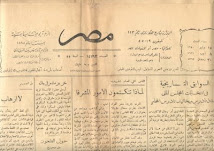Al-Ahram Weekly

12 - 18 June 2008
Gamal Nkrumah
A heady mix of religious equality and citizenship rights has become a major preoccupation for many human rights organisations in Egypt. The separation of religion and the state, the right to choose and freely practise one's own religion and the right not to practise a particular religion in which he or she was born into were also publicly debated.
On Wednesday, 4 June, a seminar on religious freedom in Egypt was convened under the auspices of the Middle East Freedom Forum. More than 200 people -- mainly activists and academics -- attended, including representatives of the various ethnic minorities who aired their own particular grievances. Speakers included Christians, Baha'is, Shia Muslims and leading human rights activists.
"Religion is a private affair. Religious affiliation, or lack of it, should be an entirely private matter. The state has no business prying and citizenship rights ought to be enjoyed by all citizens, regardless of religious affiliation. Yet today no one dare confess to being an atheist or an agnostic in public. Such an admission would be considered a serious crime and would result in the wrath of the public, lynching not excluded," Magdi Khalil, head of the Middle East Freedom Forum, told Al-Ahram Weekly.
The seminar, which touched a raw nerve in Egypt, was followed by a meeting on 5 June at the Egyptian National Council of Human Rights, headed by former United Nations secretary- general Boutros Ghali. Presided over by Coptic MP Georgette Qellini, it also focussed on the theme of religious freedom, especially the predicament of the Bahaais.
Even though the Egyptian constitution guarantees freedom of belief, in practice the situation could not be more different. Members of religious minorities repeatedly complain of alledged discriminatory government policies and legal rulings that negatively impact their lives.
The Bahaai community complains of a different set of problems. In January this year Cairo's Administrative Court ruled in favour of two Baha'is families, allowing them to obtain birth certificates and personal identification documents as long as they omitted stating their religion on court documents. This was widely seen as a minor, albeit qualified, triumph in the Bahaais' long struggle to win legal recognition. On 15 May 2006, Egypt's Supreme Administrative Court had suspended the implementation of an earlier lower court ruling that allowed Bahaais to enter their religion on official documents. Since official computerised identification cards in which an individual's religion is stated are now essential for any transaction, including the buying of property and vehicles and as a prerequisite for enrolling at university and other institutions of higher learning, Baha'is claim the ruling turns them into invisible citizens.
"The Baha'is of Egypt cannot open a bank account, register a car in their own name or purchase or sell property because of their religious affiliation. Our situation is tragic and we must wait until 1 November when the courts will once again review our case," says Baha'i activist Basma Moussa. She concedes that there have been some gains, the most important of which is the publicity surrounding the Bahaais' predicament in Egypt today.












4 comments:
The only solution for this Problem is Patience...
This is just frustrating for anyone to live in a country without an ID. It is a shame on such country to do that with their citizens.
Patience is the key to any obstacles.
People are ignorant and all they think about their own benefits and they don't care about others, if you leave them without guidance they will be worse than animals...
Post a Comment